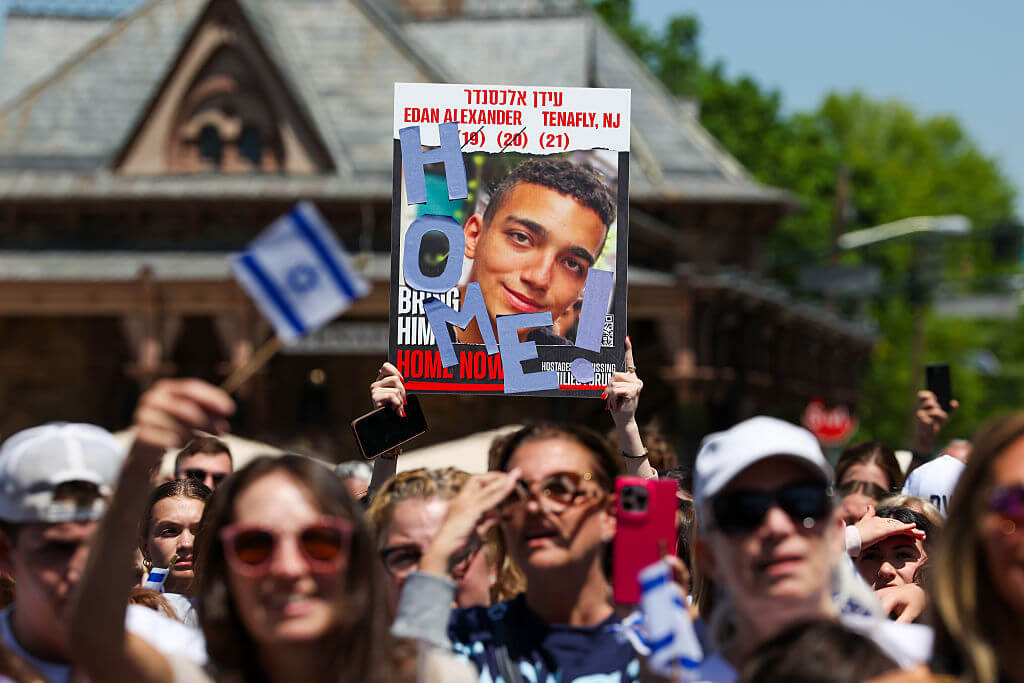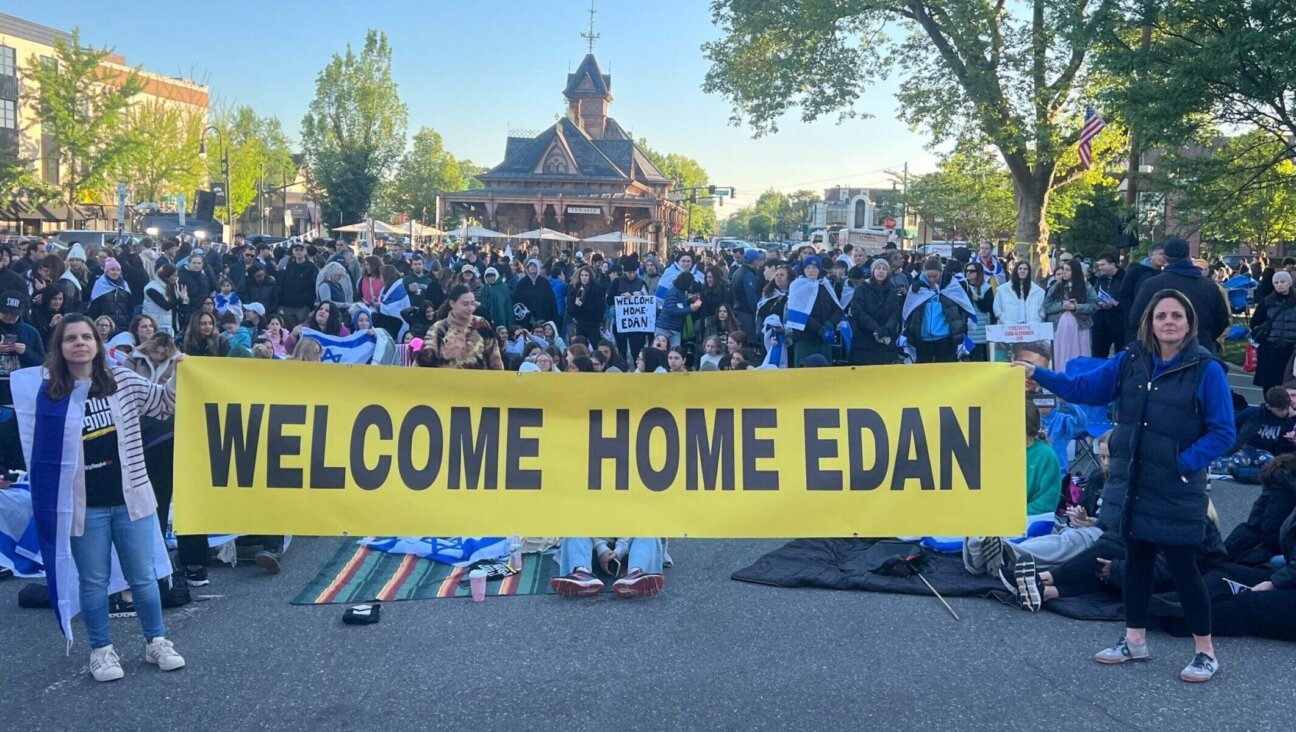In Pittsburgh, Those Who Take Care Of The Dead Need Care, Too

Image by gettyimages
When the deadliest attack against the American Jewish community in history struck the Tree of Life synagogue in Pittsburgh on Saturday morning, 30 members of the community knew they needed to get to the crime scene immediately.
These 15 men and 15 women were not rushing to the scene as police or paramedics. They are members of their community’s chevrah kadisha — an organization of Jewish volunteers called upon to ensure that deceased Jewish bodies are prepared to be buried according to Jewish law.
The bodies must be washed, properly dressed and buried within just a matter of days. They must also never be alone, so members of the chevrah kadisha stood outside the synagogue in the rain on Saturday night — the bodies were still inside the crime scene, and that was as close as they could get, the New York Times reported.
The chevrah kadisha’s work began immediately following the shooting of 11 victims killed during their Sabbath-morning prayer service— and continued through the week. But an attack on the Jewish community unlike anything America has seen before brings an array of unforeseen challenges to the chevrah kadisha. At this unprecedented moment, even the comforters need special comfort, and even the most stringent of Jewish rules need to bend, if not break.
David Zinner, the executive director of Kavod v’Nichum, a non-denominational organization that advocates for and teaches about Jewish values and practices around illness, death and bereavement, explained to the Forward on Tuesday that there are three major challenges for the chevrah kadisha in Pittsburgh — the quantity of victims, the severity of injuries and their own grief of losing members of the tight-knit community.
“Halacha [Jewish law] sometimes gets tempered by the reality of the practical work that we do,” Zinner told the Forward, citing the example of the Jewish prohibition of changing the way a deceased body appears, meaning performing an autopsy is not preferred. In the case of a mass shooting, it is legally required. “So we work with the medical examiner to try and minimize how much further damage is done to the body,” he said. “The Jewish practice is that we understand there is a civil government and we try to work with it, not minimize it.”
Zinner travelled from Maryland to Pittsburgh to assist the city’s chevrah kadisha, explaining that his “role of being in Pittsburgh is not to teach them or take over for them but to support them and provide resources.” He said that “there is a difference between comforting families and being there for the people who are taking care of the bodies.” Zinner has taken on the latter as his responsibility. He knows it is a job too big to take on singlehandedly. Two women, both trained psychotherapists, from a Boston chevrah kadisha were scheduled to fly in mid-week to relieve Zinner.
“There is nothing in life that is more intimate than washing the body of a person in your community who has just died,” Zinner said.
An emergency room physician in Chicago who served as Kavod v’Nichum’s past president, Michael Slater, told the Forward that this experience will be unlike anything he or other members of the chevrah kadisha have dealt with before. “A lot of us are used to a dealing with a single traumatic death — a suicide or illness — which is still horrific in its own way,” he said. “Outside of Israel, there have thankfully not been many chevrah kadishas that take care of multiple deaths in a short time. I can’t imagine what this group will be going through. ‘Horrendous’ and ‘numbing’ were the two words that came back from the team after I spoke to them,” he said.
“If any of the steps we typically go through [to prepare the body for burial] cause more damage to the body that has gone through trauma, then we will not do them. There are instances where we will just lay the shrouds on top of the body because of so much trauma,” Slater said. “There are general principles as to what you do, but we approach each case with keva and kavanah,” he added using the words for two core Jewish values, holiness and intent.
A member of Pittsburgh’s chevrah kadisha had just come from the funeral of Jerry Rabinowitz, a doctor who had also been a fellow chevrah kadisha volunteer, when he spoke to the Forward.
“We know the folks that were killed. One of the women donated coats last week to a program that I run. [Dr. Rabinowitz] treated most of us. It’s really personal work that we are doing right now,” the member who requested to remain anonymous, said. He was attending services at a nearby synagogue when the attack occurred.
On his way to the next funeral, Zinner told the Forward, “These aren’t professionals. They are just people in the community doing a mitzvah. It requires a lot of courage, especially when dealing with the bodies of someone they sat next to at shul.”
Contact Haley Cohen at [email protected]
The Forward is free to read, but it isn’t free to produce

I hope you appreciated this article. Before you go, I’d like to ask you to please support the Forward.
Now more than ever, American Jews need independent news they can trust, with reporting driven by truth, not ideology. We serve you, not any ideological agenda.
At a time when other newsrooms are closing or cutting back, the Forward has removed its paywall and invested additional resources to report on the ground from Israel and around the U.S. on the impact of the war, rising antisemitism and polarized discourse.
This is a great time to support independent Jewish journalism you rely on. Make a gift today!
— Rachel Fishman Feddersen, Publisher and CEO
Support our mission to tell the Jewish story fully and fairly.
Most Popular
- 1

Fast Forward Ye debuts ‘Heil Hitler’ music video that includes a sample of a Hitler speech
- 2

Opinion It looks like Israel totally underestimated Trump
- 3

Culture Is Pope Leo Jewish? Ask his distant cousins — like me
- 4

Fast Forward Student suspended for ‘F— the Jews’ video defends himself on antisemitic podcast
In Case You Missed It
-

News In Edan Alexander’s hometown in New Jersey, months of fear and anguish give way to joy and relief
-

Fast Forward What’s next for suspended student who posted ‘F— the Jews’ video? An alt-right media tour
-

Opinion Despite Netanyahu, Edan Alexander is finally free
-

Opinion A judge just released another pro-Palestinian activist. Here’s why that’s good for the Jews
-
Shop the Forward Store
100% of profits support our journalism
Republish This Story
Please read before republishing
We’re happy to make this story available to republish for free, unless it originated with JTA, Haaretz or another publication (as indicated on the article) and as long as you follow our guidelines.
You must comply with the following:
- Credit the Forward
- Retain our pixel
- Preserve our canonical link in Google search
- Add a noindex tag in Google search
See our full guidelines for more information, and this guide for detail about canonical URLs.
To republish, copy the HTML by clicking on the yellow button to the right; it includes our tracking pixel, all paragraph styles and hyperlinks, the author byline and credit to the Forward. It does not include images; to avoid copyright violations, you must add them manually, following our guidelines. Please email us at [email protected], subject line “republish,” with any questions or to let us know what stories you’re picking up.














